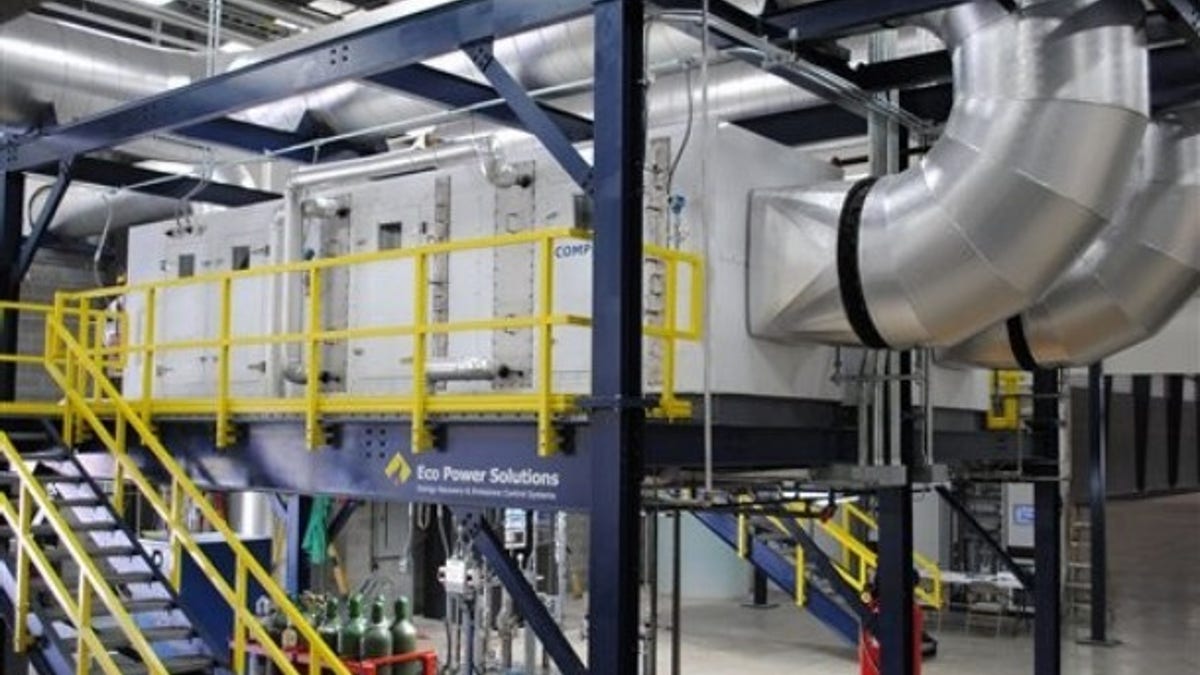
COMPLY 2000 - Multi-Pollutant Emission Control System (Photo: Business Wire)
In a concession to Republicans and moderate Democrats, the Obama administration has delayed two environmental restrictions on the nation’s power plants.
Environmental Protection Agency (EPA) Administrator Lisa Jackson tapped the brakes on the controversial proposal following an order from the White House. The regulations would have tightened the emission standards on power plants and waste incinerators at facilities across the country. They were set to begin May 20, and both public institutions and private companies would have three years to implement them.
The Obama administration has argued the regulations were needed to protect Americans from deadly respiratory effects of mercury, dioxins and lead emitted when coal is burned to produce electricity. But corporations, particularly electric utilities, have been fighting the rule changes in Congress and sought to have the new standards overturned in court.
Business groups argue the regulations, which the EPA says would require them to implement "maximum achievable control technology," are costly and unnecessary and may force companies to shut down some plants leading to job losses and energy shortages.
In its action Monday, the EPA acknowledged the pressure from private companies led to the delay adding that more time was needed for public input.
"Justice," the EPA action states, "requires postponing the effectiveness of these rules."
The EPA added the postponement would stay in effect, "until the proceedings for judicial review of these rules are completed or the EPA completes its reconsideration of the rules, whichever is earlier."
The decision is a victory for Republicans in Congress who believe the EPA is overstepping its bounds. Many Republicans believe new EPA rules would hinder private industry during tough economic times.
Last September, Sen. James Inhofe of Oklahoma, a leading critic of the EPA and ranking Republican of the Committee on Environment and Public Works, issued a report titled, "EPA's Anti-Industrial Policy: Threatening Jobs and America's Manufacturing Base."
It found that the proposed rule changes to boilers and incinerators could put nearly 800,000 jobs at risk. "Reducing emissions of mercury, hydrogen chloride and other hazardous air pollutants from commercial and industrial boilers is good policy," the report stated. "But the manner in which EPA set standards to reduce those emissions is impracticable and costly."
Rep. Fred Upton, R-Mich., the chairman of the Energy and Commerce Committee, praised the EPA's recent decision.
"I think they realized that they really just had not done all their homework," Upton told Fox News. "This has a tremendous impact on businesses across the country as it relates to jobs. Some of these regulations that they're looking at will be in the billions, We need a careful analysis before they go ahead with some of this rulemaking."
Environmentalists are disappointed with Monday's stay.
"Two years ago the Obama administration took office vowing to protect public health and respect the law," said attorney James Pew of Earthjustice, a group that sued the EPA twice over the boiler and incinerator regulations in an attempt to set tougher standards.
Monday's decision "disserves both of these principles. By the EPA's own calculations, the health protections it has elected to delay would save up to 6,500 lives each year."
The Sierra Club's Sanjay Narayan called the delay, "difficult to understand."
Some critics have charged that this is a pre-election political move that will give President Obama some leverage against criticism he's allowing the EPA to run amok over private industry.
Dave Conover, a former deputy assistant secretary at the Department of Energy and now senior vice president of the Bipartisan Policy Center, agrees it helps the Obama administration but added, "if EPA hadn't issued the reconsideration, the Boiler MACT rule would have been challenged in court ... if not by Congress first."
So it's a "win-win" situation for the White House, he points out. He added the Obama administration, "would be smart to, and likely will, revisit schedules for regulations with softer deadlines, given both the current political and economic climate."
The EPA has set a July 15 deadline for any more public submissions on the proposed regulations.




